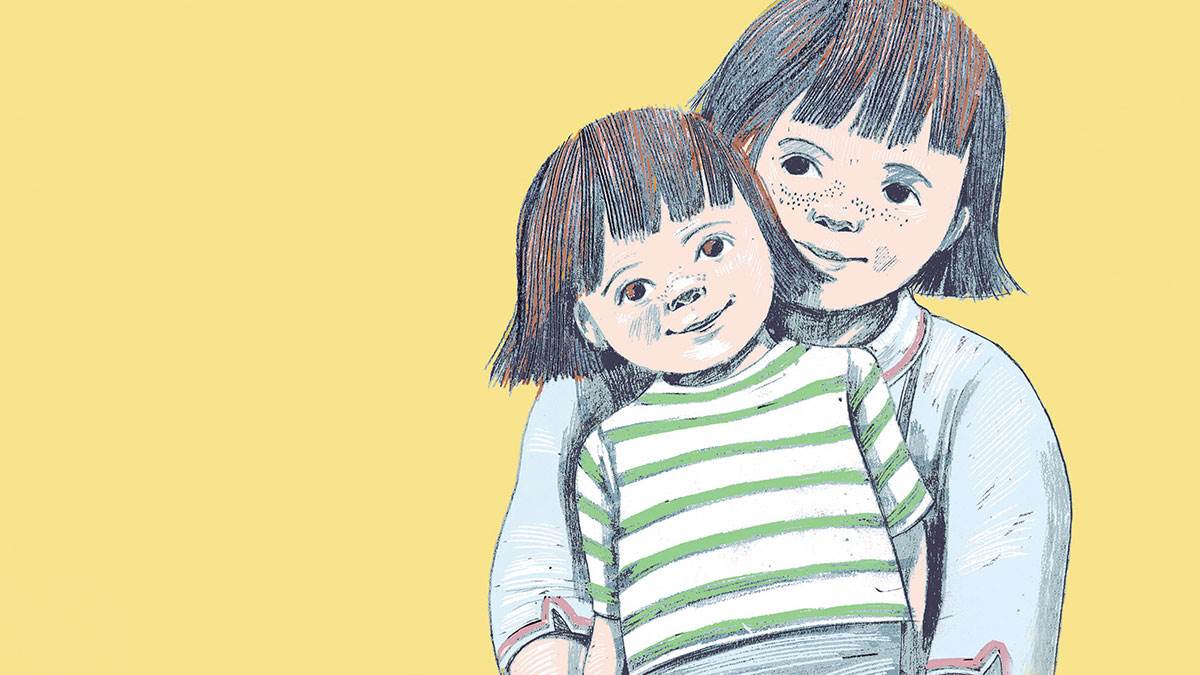Why we need food banks – and other acts of kindness
Published on: 21 November 2019 Author: Kate Milner
A third of UK children live in poverty. This statistic, plus her own experience of not having enough to get by, pushed Kate Milner into writing a book for children about food banks, money worries and everyday joys.
 Illustration from the front cover of It's a No-Money Day by Kate Milner
Illustration from the front cover of It's a No-Money Day by Kate Milner
Four or five years ago, I was in the supermarket when I noticed a young mother carrying her toddler on her shoulder while she collected her shopping. It was really the toddler I noticed, smiling and sleepy. Like many older women, I am enchanted by young children. I am at the same time deeply nostalgic for the time in my life when I had young children, but also deeply grateful that they are now grown and I no long have to work that hard.
The young woman was just ahead of me in the queue for the checkout but when she tried to pay for her groceries, her card was refused: lack of funds. What to do? She was embarrassed, the checkout clerk was embarrassed, I was embarrassed.
There was a time when my marriage was falling apart and my soon-to-be-ex-husband lost his job. I was suddenly faced with trying to feed my two young daughters on my part-time wages. I was lucky, my descent into poverty was quickly reversed. But I know what it feels like to not have enough. To be dithering in the supermarket aisle, knowing your child is going to need a meal but not having enough to buy the ingredients. That’s why I stepped in and paid for that mother’s shopping, so that her little lad had something to eat.
There are some people who will tell me, pleased with their own worldly wisdom, that it was probably a set-up and she had seen me coming. No. She paid me back, every penny. The vast majority of people who are working and struggling to pay their bills and feed their children are honest, decent people and loving parents. They just don’t have enough money.
People like you and me
There is one statistic that I keep returning to: a third of children in this country live in poverty. That’s an average of nine in every school class.
What if this number increased? Even if it didn’t, a third is far too much. No children should have to be visiting food banks with their families.
I made my book, It's a No-Money Day, as a tool for teachers who want to talk to their pupils about poverty. I want children to know what a food bank is and to understand why we should donate to it. I also want children who know their parents use food banks to see their own life reflected back to them in a positive way.
Our culture does a really good job of making sure the poor feel ashamed of their situation. I want to raise the possibility that people who use food banks are just ordinary, decent people like me or you who work hard but have been unlucky.
Although poverty is obviously a huge strain on a family, I wanted to make sure the book isn’t unremittingly gloomy. The little girl is the narrator. It is her experience that informs the book and, because she is loved and secure in that love, she is OK. Although she is sometimes hungry, she is still able to enjoy a make-believe game, or the library, or chasing the pigeons.
'We need a web of empathy'
Some people of my age worry about the disappearance of a welfare state able to protect almost all children from the rollercoaster effects of modern capitalism. We used to see food banks as a temporary but necessary sticking plaster before things returned to “normal”. Now, we suspect they are here to stay. The little girl in the book isn’t bothered by any of this: she doesn’t know there ever was a welfare state, and she accepts the world as it is.
Food banks are a generous and decent response to increasing poverty and it is this kind of action that provides us with the best defense against a dark future. We need a web of empathy to protect the most vulnerable in our communities.
Small acts of kindness, like putting something in the food bank bin at the supermarket, giving to charity shops or fighting to preserve libraries, help sustain all of us.
Paying for a stranger’s shopping, because you were helped when you were in need (and that stranger will help others when her situation has changed), is just one more way of supporting all our children.
That’s a rather grandiose way of saying that I hope my book suggests to children that we should be kind and show respect.
Topics: Personal/social issues, Features






Add a comment